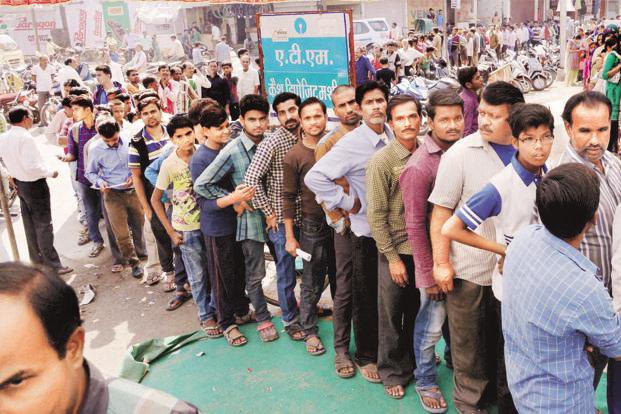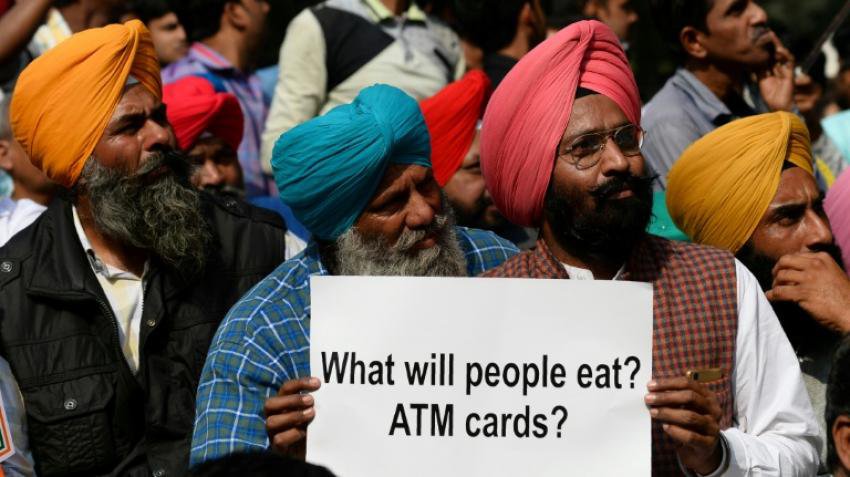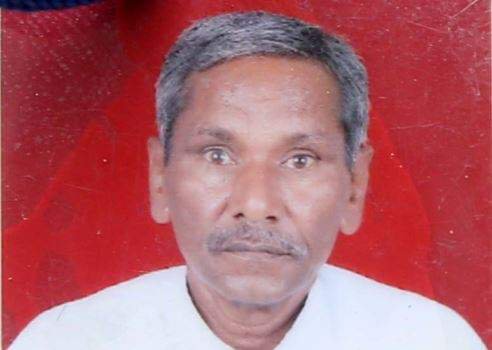The surgical strike that is demonetisation has found its iconic image. And it’s not the Prime Minister’s 90-plus mother standing in line to exchange her money and do her bit for Mother India.
It’s a photograph from Hindustan Times of an old man, grizzled and weathered, weeping as he realises he has lost his place in the long queue outside the State Bank of India in Gurgaon. It was captioned, “They said only the rich will cry.”
The man did not seek to become the face of demonetisation any more than that little girl aflame from napalm sought to epitomise the naked suffering of the Vietnam War. But these images tell a story that we all sense, but find hard to articulate. We run erudite articles bristling with the expert opinions of duelling economists. We have political pundits predicting the effects of demonetisation on electoral fortunes.
We have pollsters run poll after poll to gauge every little shift in public mood. But nothing quite tells the story of demonetisation and the people it affects the most than a picture like that, encapsulating in one frame an old man’s baffled despair – the collateral damage of a so-called “surgical strike”.
And we see in that picture the others standing in line, the ones who still hope to get their money, the women holding onto their place in line, looking at the weeping man – not unkindly but stoically, unyielding in their own resolve. While many have tweeted about feeling the heartbreak of that old man, what has also struck a raw nerve is that we see our faces in those who are standing in line. And we do not want to answer the question – what would we have done faced with his tears?
Let us be clear. One old man weeping in a line is no more representative than a nonagenarian woman readily queuing up to change her money. It is also true that the worst of times can bring out both the worst and the best in us. Just today, The Telegraph ran the story of a man who tried to deposit Rs 26,000 (their medical emergency money) in the bank next door and had to run from pillar to post, filling forms and writing letters after the latest change in RBI rules. “I stepped into the bank a little after noon. Over the next three-and-a-half hours, my convictions were shredded like invalid notes,” writes the hapless customer as he bounced from official to official.

But just as there is that story, there is also another story that went viral, that shows a different face of the banks. “And if tomorrow, I have to tell another mother that we can’t give her enough cash for her child’s treatment, I will breakdown. If tomorrow I see another shivering old lady in the queue, I will breakdown,” wrote an employee in the rural branch of a national bank.
However, these individual acts of humaneness do not change one terrible fact exposed by demonetisation. It is the erosion of empathy. In the bitter you-are-with-us-or-against-us atmosphere fanned by troll armies of social media, empathy is rendered anti-national. Sidin Vadukut wrote in Mint that he muted his Whatsapp groups, depressed not by disagreement but by the unbearable lack of empathy all around.
“Oh, those people standing in line all day to change their money? They should stop complaining and see the bigger picture. Oh, those estate workers struggling without pay because they don’t have bank accounts? They should just suck up for some time and open bank accounts. Government has made it very easy for them now.”

He blames hermetic lifestyles of people like him (and me), where our only exposure to the other is the chauffeur or the maid, where our chances of meeting in the real world someone like that old ex-Army man in his pugree in the bank line are increasingly remote. Instead we are mobile phone warriors tapping away in the echo chamber of our Whatsapp groups, unaware or uncaring about how un-empathetic we have become.
When Ram Kishen Grewal, a retired soldier committed suicide demanding the longstanding One Rank One Pension implementation, VK Singh, a minister and a former soldier, quickly said, “He has committed suicide. No one knows the reason behind it. OROP is being shown as the reason. What his mental state was we do not know. Let it be probed first. OROP should be kept above politics.” Singh’s gut reaction was not to reach out with empathy to understand why the man might have been so depressed and desperate but to shield his government from any possible blame. That’s not empathy. It’s called it’s-not-my-fault.

It’s not that the government is run by cold and stony politicians incapable of emotion. Narendra Modi can be an emotional man. He has choked up more than once in public in his years as prime minister. During a Bharatiya Janata Party meet he stopped mid-speech as emotions took over while reminiscing about leaving home for social service.
He has teared up while talking about his mother’s hard work to raise him during his townhall at Facebook. He broke down when he remembered L K Advani saying Modi had done BJP a favour (kripa). The latest was while talking about demonetisation. “I have seen poverty and understood people’s problems,” Modi told a crowd in Goa and then choked up. “I was not born to sit on a chair of high office. Whatever I had, my family, my home… I left it all for the nation.” The crowd cheered lustily while the prime minister’s voice trembled.
Yet it’s worth noting that Modi was choking as he reflected on his own sacrifice, on his own journey from nothing to the PMO. That’s different from being moved to tears at the sight of someone like that old man in the bank line, someone who has nothing to do with his life, but in whose tears he can see the consequences of decisions leaders like him make everyday.
The ATMs will eventually get back their stock of money and that currency deficit will pass. But the empathy deficit is here to stay.
The information, ideas or opinions appearing in this article are those of the author and do not reflect the views of ScoopWhoop. ScoopWhoop does not assume any responsibility or liability for the same.
(Feature image source: AFP)

















